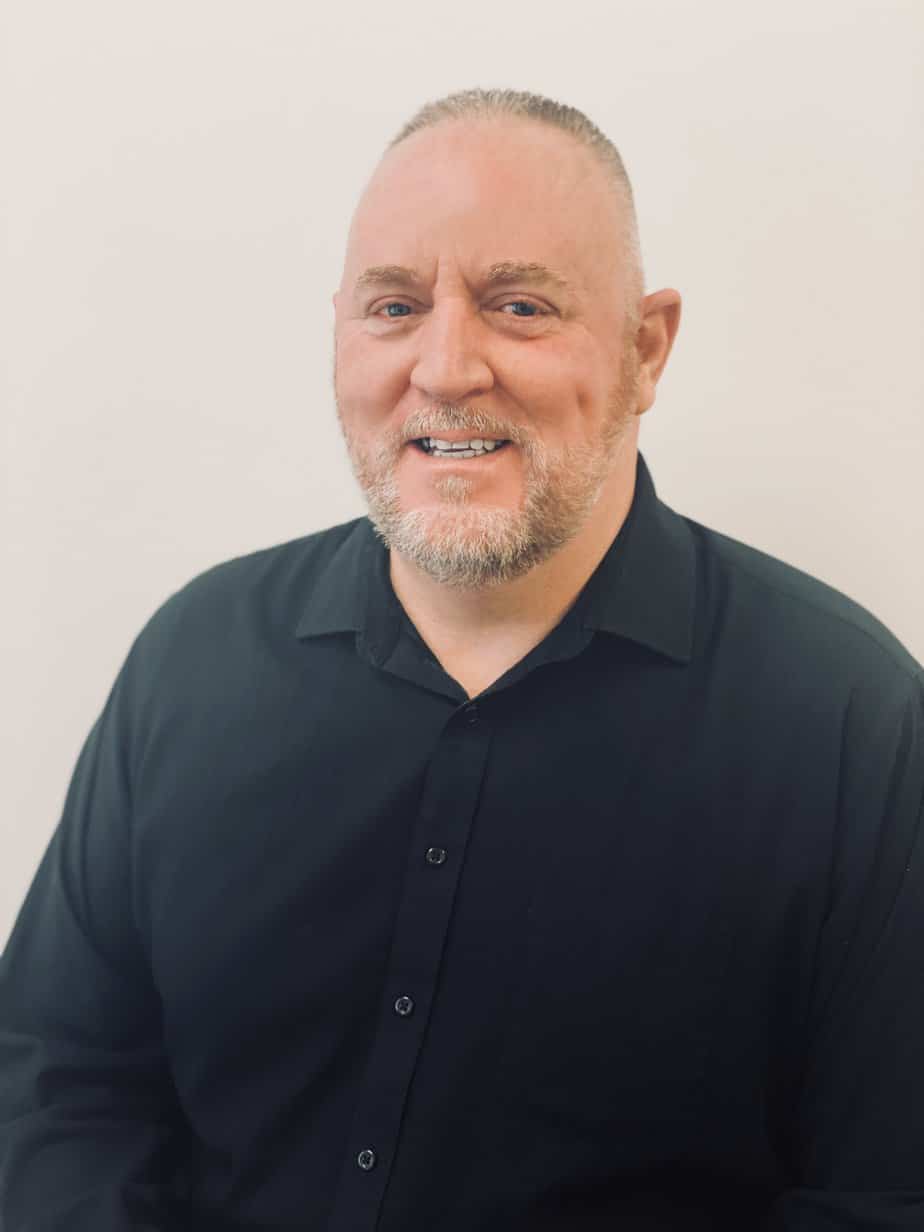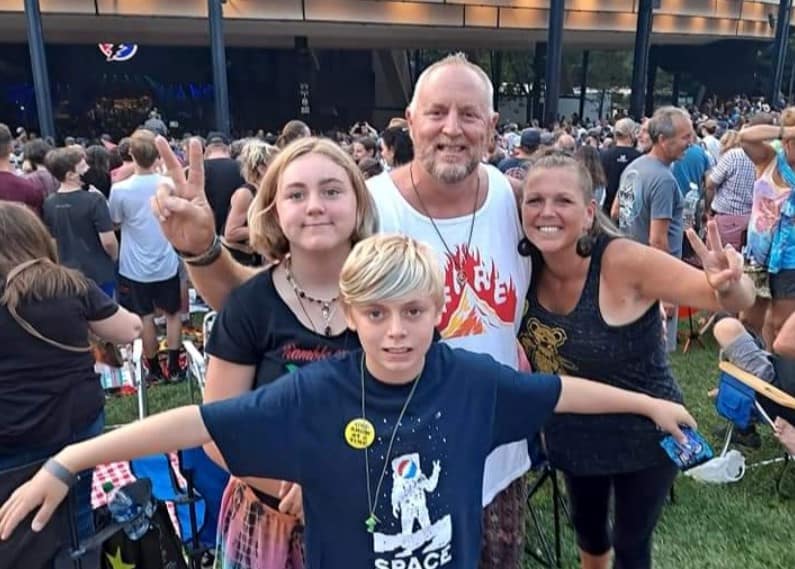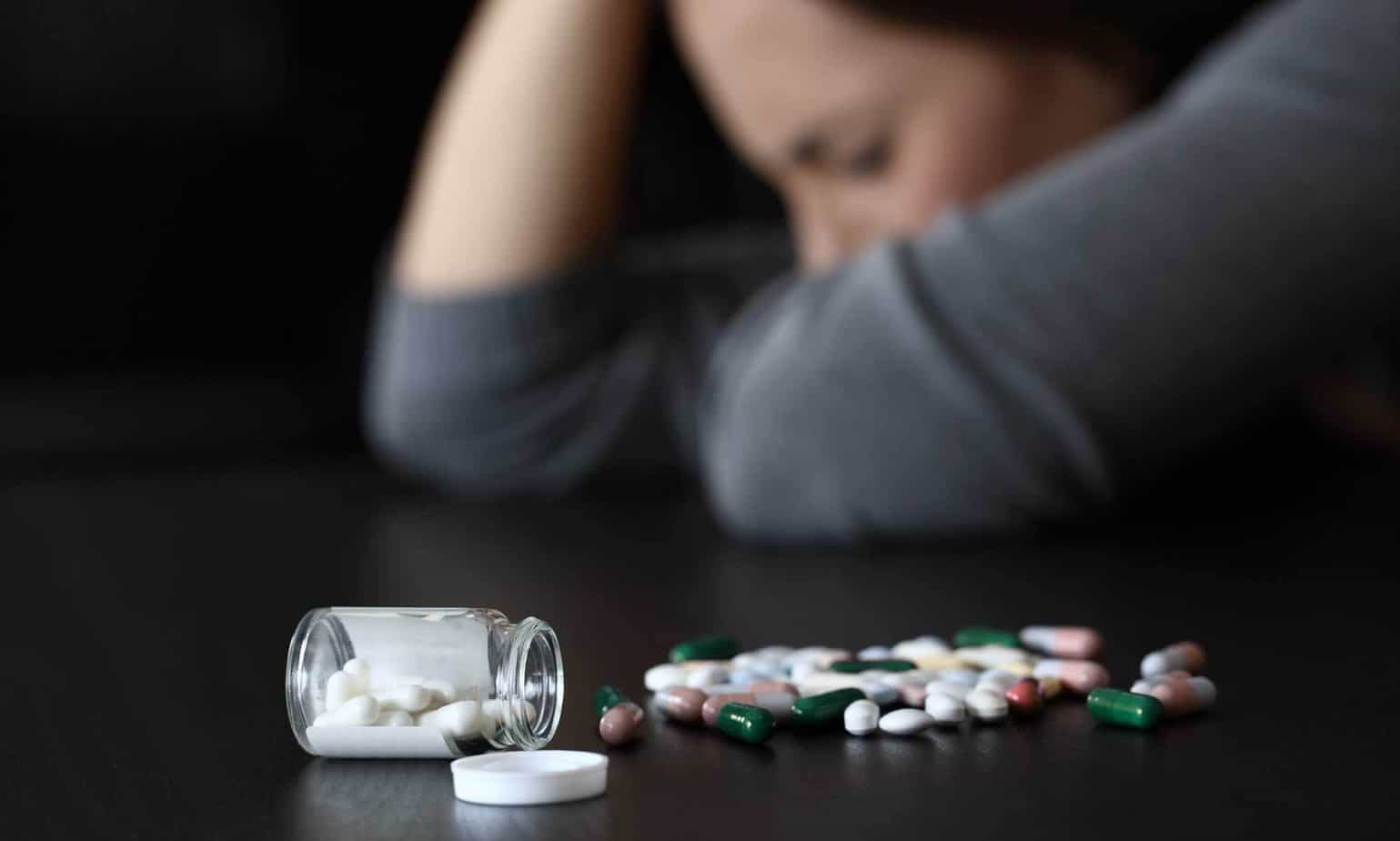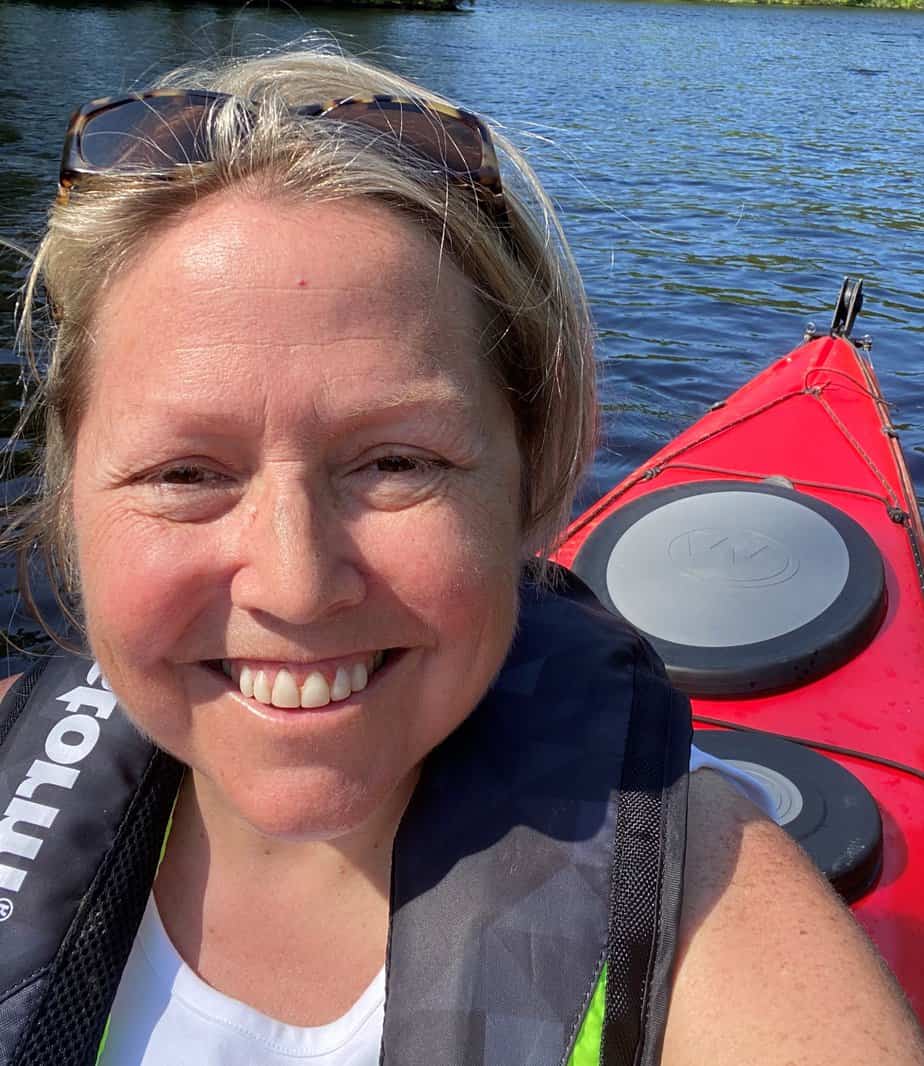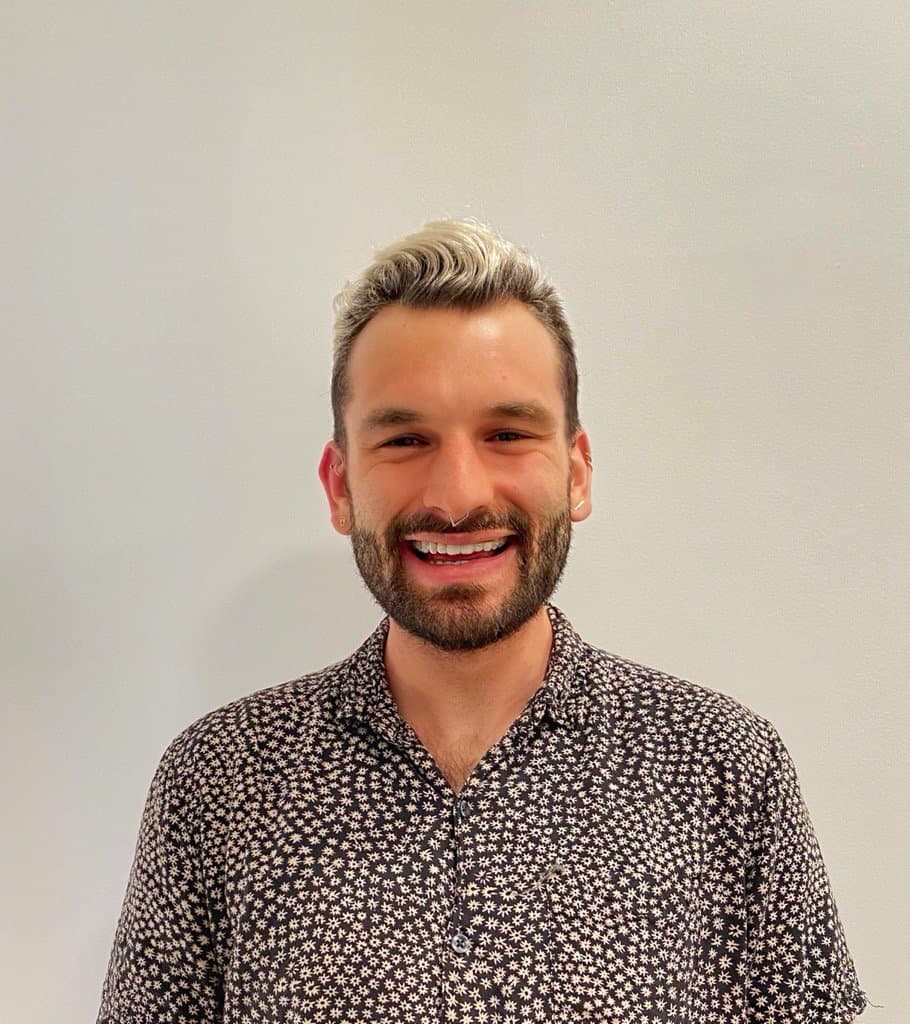- Sobriety Date: 9/11/2001
- Loving Husband and Father
- Grateful Dead Fan (Deadhead)
- AA and Wellness Advocate
Pat struggled with substance abuse most of his early life trying to run from his problems rather than face them. After many obstacles, a few attempts to get sober, and a bit of self-discovery, Pat is now living a beautiful life in recovery.
Transcript
Pat used to find it strange that people were sober. If you could drink or use drugs, why wouldn’t you? Over the years, Pat’s drug use habits spiraled, and he blamed everyone but the substances. He got in trouble with the law and tried rehab several times until he landed at Mountainside, where everything changed.
Hi, my name is Pat, and I am an alcoholic. When I was about 12 years old, I took my first drink. Around the same age, I took my first hit off a joint, started smoking marijuana, and started drinking.
I grew up in Rockland County in a place called Tappan, New York – Orangetown, right outside the city. You know, I came from a very good family – there wasn’t any alcoholism, really. My parents we’re very Irish and people think, “Oh, there’s a lot of alcoholism surrounded by that”, and there is, I mean St. Pattie’s Day, and, you know, there’s some drinking in my family.
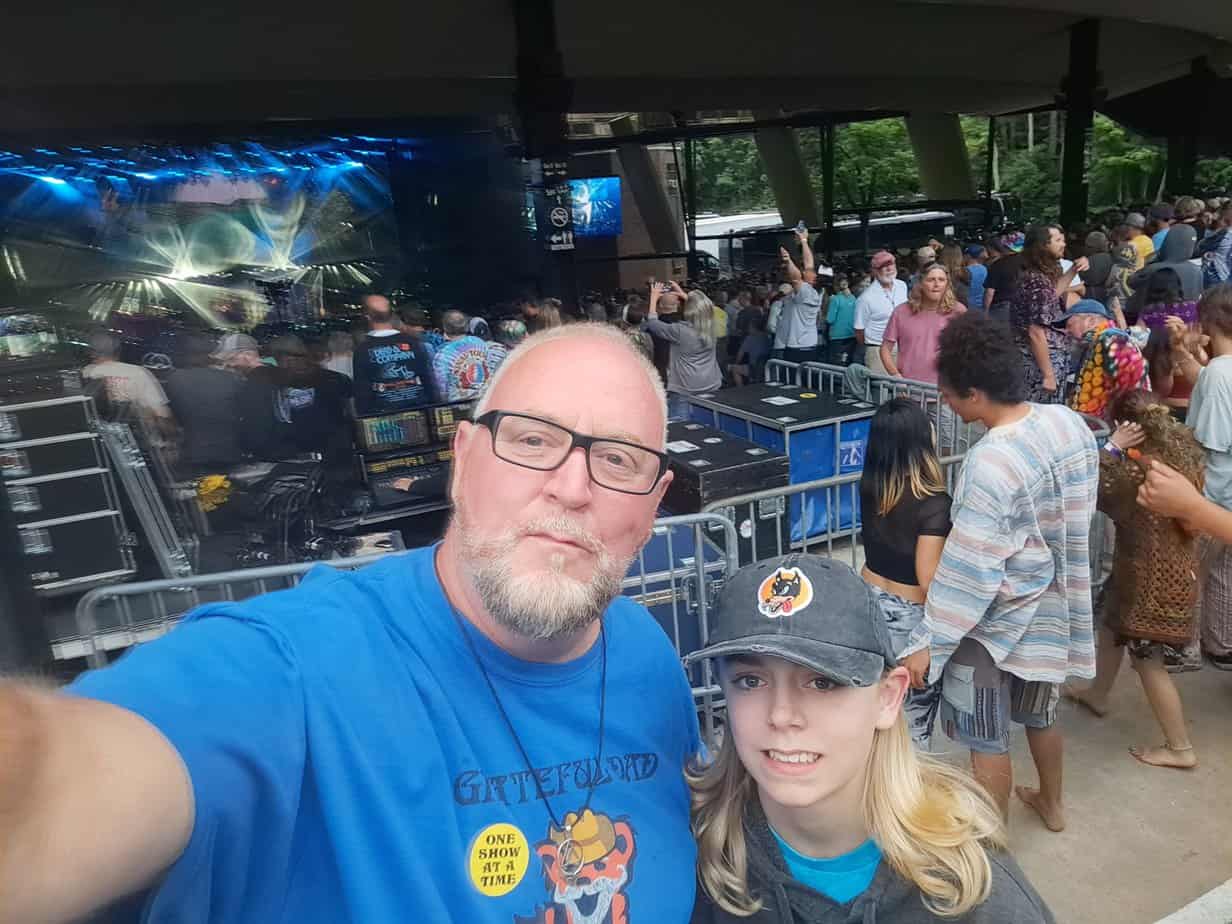
But when I came along, it was very different. My pattern of drinking that developed was more excessive than anyone else in my family. So it kind of was like, you know, “Why can’t this guy control it?”
From the very beginning, the first time I had alcohol in my system, the first time I had any marijuana in my system, the first time I ever started getting buzzed, or anything like that, it was like the most important thing in my life, you know. I drank and drugged all through high school. We had keg parties every single day – it was the 80s.
If anybody’s ever seen the movie “Fast Times at Ridgemont High,” and you saw the kid Jeff Spicoli, the burnout – that was me.
But I also played sports, but I was probably more of a burnout than I was an athlete. I was a good basketball player, and I was able to get 3 basketball scholarships to three different places, but I decided not to go to school because I kind of felt like it would interfere with my drinking. People look forward to getting to college so they can start drinking, but I was like “There’s no way.” I kind of knew that I would flunk out anyway, even though it was a free ride.
I got a job in civil service, in my town, right out of high school, at 17-18 – by the time I was 26 years old, I had already been to treatment a few times. I lost that job due to drug-related circumstances and legal circumstances. And then, you know, I got a few other jobs, here and there.
Alcohol and drugs by this point in my mid-20s, had affected every relationship I had ever had, any job I had ever had, any trouble with the law that I ever had was all alcohol and drug-related. If somebody wanted to point the finger at like, “Hey, what’s going on with this guy’s life?” It was very, very obvious.
I would never, ever, ever in a million years blame the alcohol and the drugs. It was always like, “That boss was a jerk,” or “That girl – she was not my type.” I would never blame the alcohol or the drugs.
I couldn’t imagine, when I would be working with somebody or hanging out with somebody and we were going to get out of work at a certain time, I’d say, “Oh, you know, you want to get some drinks?” and they would say, “Oh, I don’t drink.” I would naturally think that they smoked weed, and if I said, “Well, do you smoke?” and they said “No,” to that, I would be shocked. I would think, “What’s wrong with this person? Why wouldn’t they get high if they could?” You know what I mean? I just didn’t understand that people got sober.
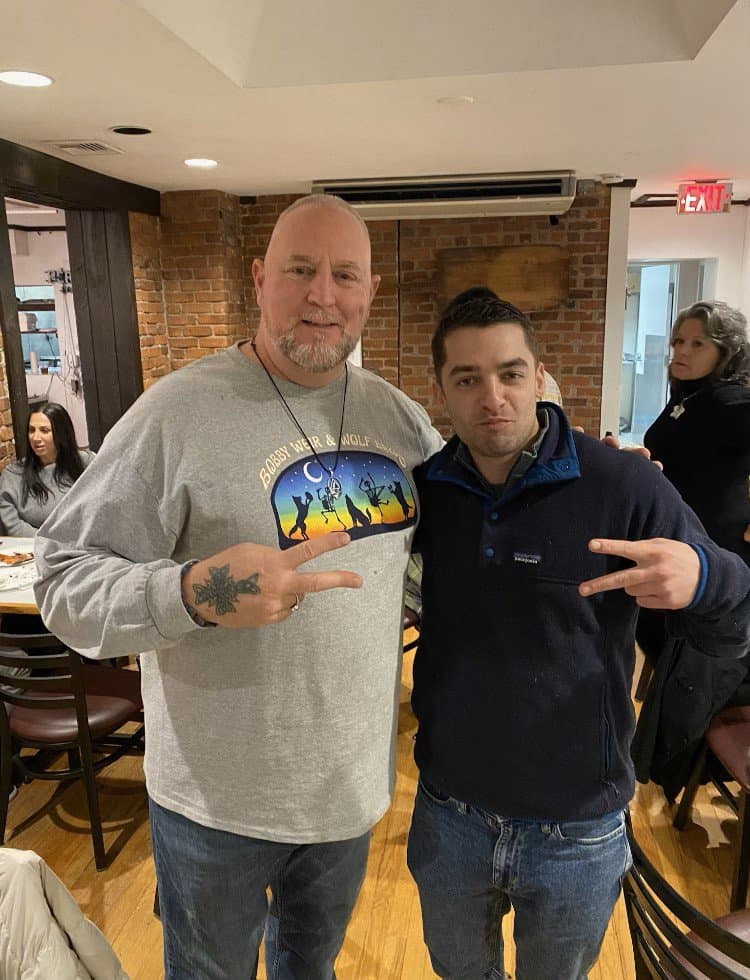
By the time I hit my late 20s, I was out of work. I had lost another great job. I was working for the Long Island Railroad, and I had been to rehab a couple of times – in and out of there. I had crashed and burned again, which was a theme. But I remember that during the last six months of my using, I had gotten 3 DWIs, and I was arrested for drugs on three different occasions, and there were drugs involved in those arrests for DWIs as well.
I had a court case in Jersey, a court case in upstate New York, and in Woodstock, New York, and a court case in Newburgh, NY. I’m juggling all these court cases, and I have a lawyer who says, “Listen, why don’t you go back to rehab? You’ve done that before and we’ve never used that.” You know, ‘I’ll get a good treatment’ type of thing to get out of trouble. I was calling different rehabs and I was asking them about their rules – like are they going to be strict?
The funny thing is, I call Mountainside – I saw that they had camping and fun-looking stuff, and I said, “Oh, this doesn’t even look like a rehab at all, it looks like a little retreat,” I came in here and they told me, “Listen, we’ll have a bed for you next Tuesday.”
That Tuesday happened to be September 11, 2001, which was good for me because I was planning to go to New York City that day to try to get an application for the Laborers’ Union, because I had a couple of cousins that worked in the Laborers’ Union in New York. I was going to fill out the application, go to rehab, and when I got out of rehab, I was going to pursue the job in New York on the Laborers’ Union.
That day there was the primaries voting in New York City, and they didn’t hand out the applications that day. Typical of my fashion, I was at the right place at the wrong time on the wrong day. We all know what happened in New York City on 9/11. I was like 2 blocks away when the first plane hit. And then me and the person that I was with, we left the city and were going up the West Side Highway, and that buddy had asked me, “Are you still going to treatment today?” and I told him, “You know, unless one of these planes hits the courthouse, then I’m going to. I have to go to rehab because I’m in a lot of trouble with the law.” And those were my feelings about it.
I remember we drove up to Mountainside that day, and the first person I met was Brenda.
When I got into Mountainside, there was no desire to stop drinking and stop drugging – I was strictly here for a letter for the court.
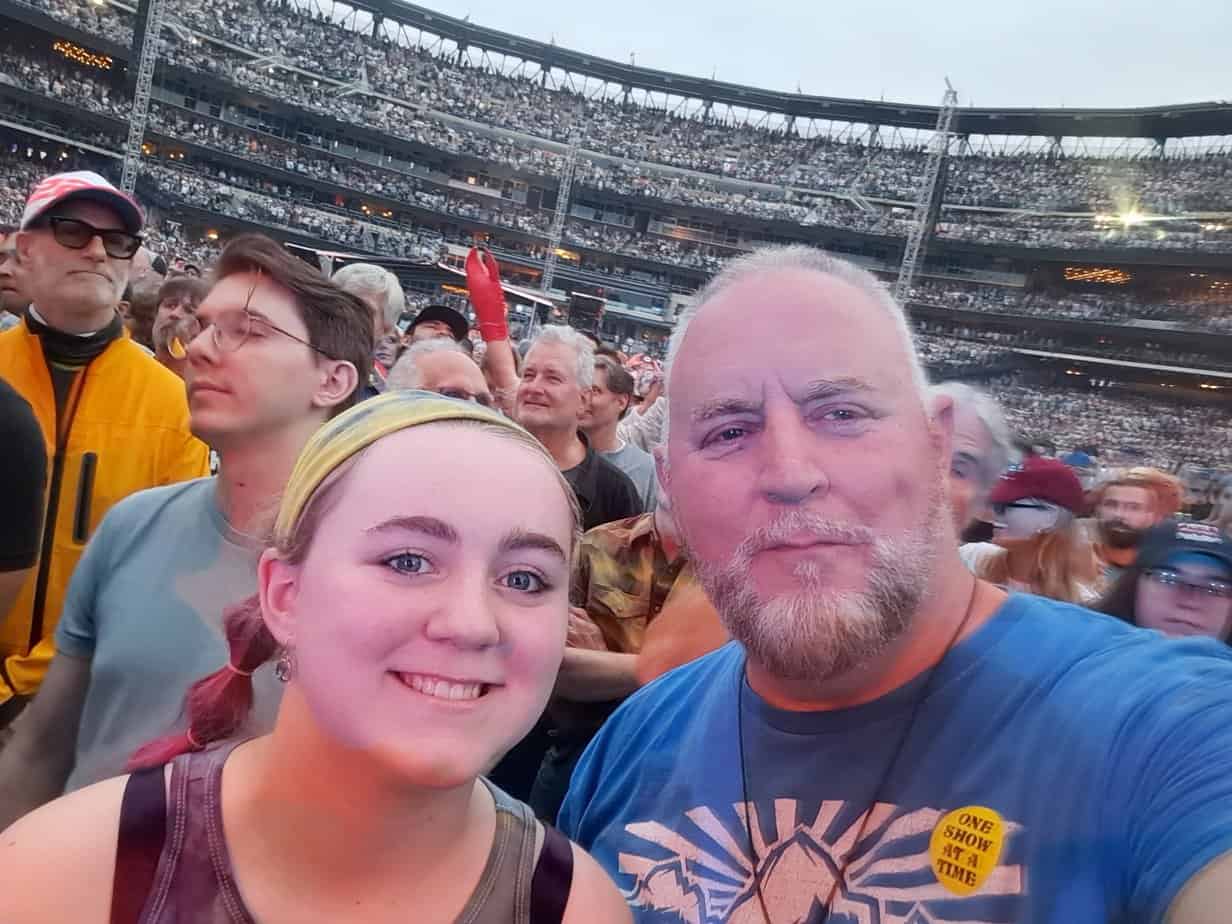
What happened here that didn’t happen in any of the other treatment centers…with the other treatment centers I would go into, I was really willing to change and my consequences had me beat into a submission thing where I wanted to make some changes, and then all of a sudden like my ego would come back. I wouldn’t take any actions when I left. It was only temporary.
But when I came here, it was kind of different. I didn’t want to get sober. I didn’t want to change, because I had failed so many different times that I kind of gave up hope on that.
But I did want to get a letter saying I tried for court. When I was here, there was Alcoholics Anonymous and 12-step, but there were so many other things that I had never experienced before, like all the wellness stuff and all the spiritual stuff.
I think attending those programs helped heal me in a way that when I did do the A.A. groups, I was in such a better, more comfortable space, I could receive what they were trying to say. You know, after I did meditation, I did yoga, the hikes on the mountain – there was a lot of recovery healing in there. It just quieted the mind long enough for the other stuff that was going to carry me through when I left, and we had a man here named Bruce Drever – He was sober for over 30-something years, and Terry and Jerick were here, and they did their meeting on Friday night. It was so inspirational.
The enthusiasm of their sobriety, and the way Jerick did the coins was like, even if you didn’t want to get sober, you walked out of that meeting thinking, “Why not?” you know. The truth is, while I was here, there was a real war going on inside me about not giving in to this again, because every time that I failed, I would get worse because I thought the quitting and the starting again was making me worse.
I didn’t understand addiction like I do today, whereas the progression would have happened anyway. Whether I stopped or started it, I was on that path going down and down and down. But in my mind, anything to defend the using. I remember I was sitting in the Chapel one day – I absolutely just love doing groups in the Chapel, because of my experience there – and Bruce was doing a meeting, and he said to everyone, “Being in recovery gives you the opportunity to live two lives: the one before, with the drinking, and the one after you stop.” And I remember thinking to myself that I wasn’t really sure about the life he was talking about, the new one with meetings, sponsors, steps, and spirituality. I was very skeptical of that, but I was very certain –
I remember sitting there, thinking to myself after he said that, “My God, you need a new life.”
My life was so destroyed. I was so unhappy, and I had spent all my money. I had wasted good love of family and relationships and friends.
I had spent everything on trying to make myself feel good with alcohol and drugs. So I started buying in. I started raising my hand when these guys would do groups and I started participating.
I started letting these people talk to me, because I’d been to Alcoholics Anonymous before. But I just really appreciated the way that Mountainside’s approach was offered in the mix of a lot of other things that help you heal.
When I left Mountainside, I ended up in Torrington, CT, and I ended up in a sober living area. It wasn’t a sober house; it was like a halfway house, and from there I started going to meetings of Alcoholics Anonymous. At one time I had owned a beautiful house in Nyack that overlooked the Tappan Zee Bridge. I had a nice fiancé. I worked for the Long Island Railroad.
If you drove by my house, you would think, “Man, Pat’s really got it going on.” But if you looked inside that house, you probably wouldn’t think that. It was a nightmare, what was going on in there.
And here I am – I had had this experience in Mountainside. I didn’t have any real address – I wouldn’t say I was homeless, but I didn’t own a residence, and I had come out of treatment, and I had come to this halfway house, but I was happier and healthier and living a better life with so much less – I was sober. I was going somewhere.
I was finally pointing in the right direction, and I ended up getting a job for a pool company that took care of all the pools in the northwest corner of Connecticut in these beautiful homes, and we used to have lunch at the Mountainside Cafe. And then one fine day, I’m at the Mountainside Café – I remember exactly where I was sitting and who I was sitting with.
And then I meet my wife, Rachel. She was at phase four at the time…here I am, this guy coming up on two years, and here’s this girl with like 8 months sober. I introduced myself, and then about a week or two later, I saw her in Litchfield at an A.A. Meeting and we just started talking – as they say, the rest is history! We got married in 2007, and we had our daughter, Nora in 2009, and our son, Jeremiah, in 2011. We’ve been together and rockin’ since then. It’s cool to have a spouse that’s in recovery.
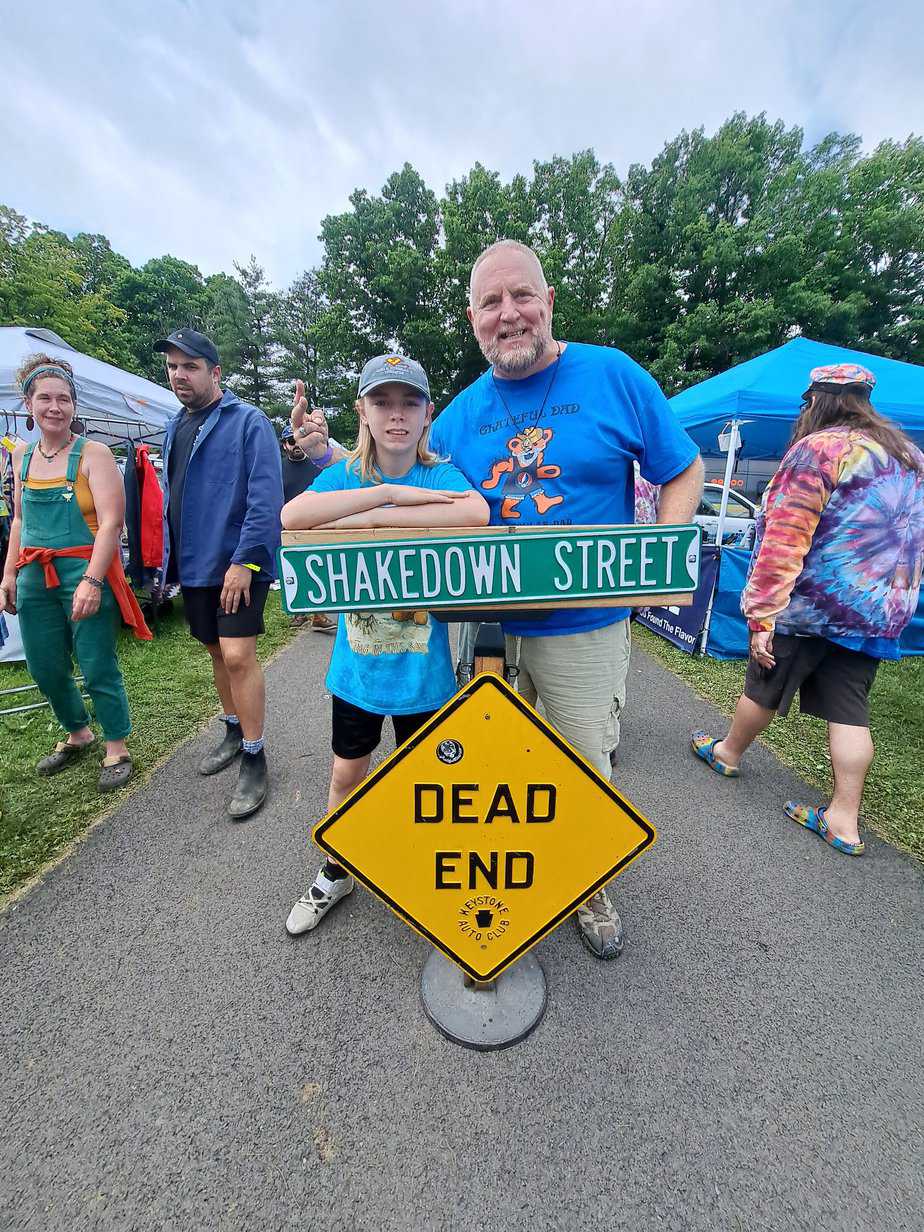
I mean, everybody has their own journey, and I think that for me, getting sober, coming to Mountainside, one hundred percent turning my life around ever since my stay here, and becoming a member of Alcoholics Anonymous has been the greatest thing that has ever happened in my life.
It’s the kind of thing that keeps delivering. To think that I need to keep that private, or that it’s my own personal thing – but I share that with my wife, we’re together, we have this life together.
I think if something is that beautiful and that powerful, it doesn’t have to be all to me. Our sober life is definitely something that we share together, and I love that about it.
My experience at Mountainside, to go back to it…I really, really, really wasn’t expecting to have a change of heart. This was probably my most feeble, worst attempt at recovery. My intention was to scam a judge with a letter that I’m doing good, and when I came to Mountainside, they didn’t care why I was there, but they did care what happened. They didn’t care why I came in, I should say, but they cared a lot about what was to be done once I was here.
You really have to keep a truly, truly open mind, and be careful of your own experiences in the past making you think something is the way it’s supposed to be when it’s not. I thought that being an alcoholic was like the worst thing in the world that could happen to me, because when you realize you were alcoholic, there’s another piece of really, really bad news on the way. And it’s that I’m probably going to end up in that place A.A.
I was sober two years sitting there in a meeting thinking to myself, “Thank God I’m an alcoholic,” because it forced me to take action, go to A.A., work the steps, and absolutely changed my perspective on everything.
But the only thing that prevented me from getting sober before was my opinion of that stuff, because I had, I had all these things, and when you’re an alcoholic and an addict, a lot of times there’s a delusion. You know, “One day I’m going to control this thing.” By the time there’s enough evidence that you can’t control it, the problem has gotten so big for some of us, because my denial was massive.
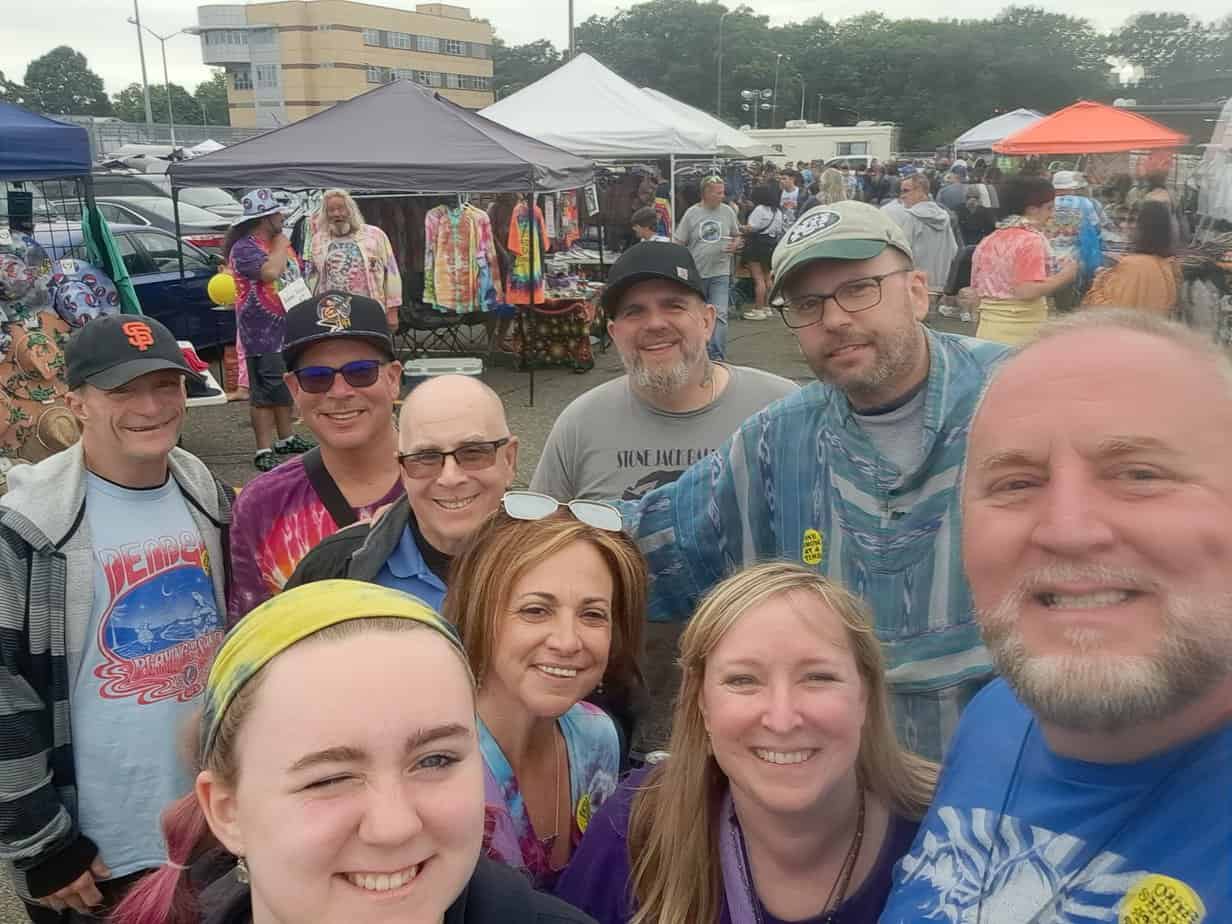
So if you’re coming into treatment, keep a totally open mind. The thing that’s cool is, you know, most people don’t like to be wrong. When I got sober, I realized that I was wrong about myself. I was wrong about a higher power. And I was wrong about other people. When I was using, if I had been right about those three things, I’d have been totally screwed.
It was a very good thing that I was wrong about those three things because I was not this piece of junk. You know, the universe was not plotting against me, and other people were not out to get me. When you used to offer me drugs, I didn’t really care what you were giving me, as long as it made me feel good. And then when I come into recovery, I feel awful and I’m very concerned about the things that are going to make me feel good. I’m very picky…I’m not picky for the ones that’ll kill me, but I’m very picky for the ones that’ll save me.
So just keep an open mind. Not everything that is presented as a gift is a gift, and not everything that’s presented as a nightmare is a nightmare.
Just have your experience. So I really, really appreciate and I want to thank you for asking me to do this. I was honored and I feel like it’s a blessing.
Want to be featured? If you are a Mountainside alumni interested in sharing your recovery story with us, please email kevin.doyle@mountainside.com
If you or a loved one is struggling with addiction, Mountainside can help.
Click here or call (888) 833-4676 to speak with one of our addiction treatment experts.

 By
By 